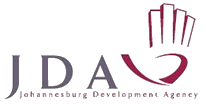In 20 years, the City of Joburg has delivered new clinics, upgraded roads, installed thousands of new streetlights and improved sanitation and access to clean water, improving residents’ lives immeasurably.
As it celebrates the 20th anniversary of the country’s democracy, the City of Joburg has made great strides in managing and improving a progressive metropolis.
The City has invested R100-billion over 10 years in strategic infrastructure, roads, water, power and broadband, thereby creating more job opportunities and improving the lives of its many residents.
DELIVERING WATER, SANITATION AND ELECTRICITY
Improving access to water, and improving sanitation and hygiene in Johannesburg has made life safer and easier, especially for those in vulnerable communities.
Despite a population growth of 37% over the past decade, 98% of Johannesburg households now have access to piped water reducing the sanitation backlog by 5%, and recently, Joburg’s drinking water received a 99. 9% rating in a Blue Drop report. Blue Drop is a water quality rating system, in line with the requirements of the Water Services Act.
The City has also spent some R872-million on electrical infrastructure projects, including upgrades to the power network.
Nine out of ten households are connected to the electricity grid; 3507 new households have been electrified and City Power has installed 5343 new public lights.
City Power will continue to roll out a R1.25-billion smart electricity meter system over the next three years. These will eventually replace the conventional meters currently in use in households, businesses and industry across the city.
Waste management services have also improved, with 133 informal settlements benefitting from regular waste removal.
HEALTHCARE
The City is also working diligently to improve residents’ access to quality healthcare.
The number of clinics in the city has increased to more than 83, attending to an average of 14 416 patients per day.
So far, the City has upgraded four clinics to accommodate large numbers of patients and improve accessibility. These upgrades are at a number of clinics, including Slovoville Clinic in Soweto, Davidsonville Clinic in Roodepoort, Petervale Clinic in Petervale and Freedom Park Clinic in Devland, with one more at Ivory Park nearing completion. The clinics are often used as an overflow facility for the larger hospitals.
In an attempt to reduce HIV/Aids transmission, the City has also trained a number of community-based volunteers to visit households educating residents on the disease. The project is active in 12 areas: Ivory Park, Sol Plaatjes, Dlamini Camp, Denver, Devland, Fine Town, Itsoteseng informal settlement, Protea South informal settlement, Mayibuye informal settlement, and Kliptown informal settlement.
ROADS
The City’s attention to upgrading and maintaining infrastructure is paying off. It has upgraded gravel roads in underdeveloped areas such as Diepsloot, Ivory Park, Braamfischerville and Orange Farm.
The City has also attended to stormwater drains in these areas, as well as constructing the Alexandra and Le Roux Avenue bridges in Glenanda.
More than 36 588 employment opportunities have been created as a result of the construction and improvement projects.
A DIGITAL CITY
The City is bridging the digital divide, rolling out more than 900km of fibre optic broadband cable around the metropolis. The new network will reduce telecommunications costs, improve service delivery and improve access to information technology across the city.
The broadband project underpins the City’s long-term vision to develop Joburg’s economy by empowering small-and medium-sized businesses; to create access to public services; to foster youth development; and to increase employment opportunities.
The broadband network covers all seven regions in the city.
SAFETY
The City has been working closely with community policing forums, street patrollers, neighbourhood watches, and the security sector to ensure safety on the streets and roads. It has issued a total of 723 691 fines to drivers; 119 928 drivers have been fined for driving unsuitable vehicles; and more than 3.4 million drivers were arrested for speed violations.
Some 200 CCTV cameras have been erected around the city, in areas where street crime is prevalent. The screens are monitored in a central control room in the Carlton Centre and emergency and police services are despatched should an incident occur.
A greater emphasis on by-law enforcement has also resulted in a 72% reduction in illegal advertising.
The City is also working towards eradicating illegal dumping, littering and dangerous illegal electricity connections.
FOOD SECURITY
Boosting urban agriculture has been one of the City’s top priorities, creating employment opportunities and helping poor communities cope with food scarcity.
The City works with the Department of Agriculture to provide seeds and gardening tools to build urban gardens. It also supports building cost-efficient rooftop gardens for small-scale vegetable production in the inner city. The City also assists small-scale farmers with storage facilities and marketing advice.
In 20 years, the City of Joburg has significantly improved the lives of residents, especially those in outlying areas, and looks forward to continuing this winning streak.

